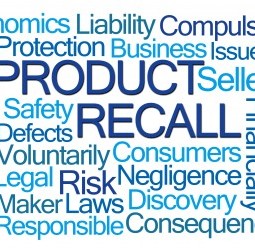What is Risperdal?
Also known as Risperidone, Risperdal is an antipsychotic used to treat the complications that occur from mental disorders such as schizophrenia, bipolar disorder, autism, manic depressive disorder, and others. It is reported to work by helping balance natural substances in the brain to control mood.
Risperdal was developed in the late 1980s and was approved for sale in the U.S. in 1993. It even made the World Health Organization’s List of Essential Medicines, which names it as one of the most important medicines needed in even the most basic health system.
Risperdal Side Effects
Some of the most common side effects associated with this drug include dizziness, drowsiness, lightheadedness, drooling, weight gain, nausea, and fatigue. These side effects are common and not harmful in most cases unless they occur with great frequency.
Severe Risperdal Side Effects
However, Risperdal also comes with more severe side effects, which can cause serious problems for the patient. These side effects include:
- Fever
- Stiff muscles
- Confusion
- Difficulty swallowing
- A sign of an infection including persistent sore throat, fever, etc.
- Excessive sweating
- Mental or mood changes including anxiety, panic attacks, or restlessness
- Uneven or fast heartrate
- Restless movements in the muscles of the eyes, jaw, tongue, or neck
- Uncontrolled shaking or tremors
- Worsening of diabetes symptoms
Complications from Risperdal
In some extreme cases, Risperdal has been known to cause lifelong illnesses, conditions, and even death. The most serious complications from Risperdal are:
Gynecomastia – The medical term for enlarged breasts in males, Risperdal can at times increase a hormone called prolactin, which increases lactation in the breasts, even in males. In some cases, this condition is permanent and the males must undergo corrective surgery.
Tardive dyskinesia – This is an involuntary neurological movement disorder brought on by the continued taking of drugs like Risperdal. In many cases, this condition can be permanent and limit the patient’s ability to function in normal society. Some of the early warning signs of tardive dyskinesia are unusual or uncontrolled movements of the lips, mouth, tongue, face, arms, legs, or other.
Neuroleptic malignant syndrome – This is a rare yet potentially life-threatening condition that is a direct reaction to certain antipsychotic drugs. Early warning signs include fever, severe fatigue or confusion, sweating, irregular heartbeat, dark urine, change in urine, and pain, tenderness, stiffness, or weaknesses in the muscles.
Risperdal Lawsuit
In 2013, the makers of Risperdal, Johnson & Johnson, agreed to pay $2.2 billion in settlements for improperly marketing the drug and not warning the public about its dangers. This was especially true in the case of elderly patients who suffered strokes as the result of taking Risperdal, and the company was forced to change its label to warn against use in elder patients with any form of dementia.
Frequently Asked Questions
Frequently Asked Questions
In the United States, a tort refers to a, “body of rights, obligations, and remedies that is applied by courts in civil proceedings to provide relief for persons who have suffered harm from the wrongful acts of others.”
What is MDL?
An MDL stands for multidistrict litigation and is a special legal procedure conducted in federal court that is designed to quickly conduct the handling of complex cases, which can include dangerous drug and medical device lawsuits.
Product Defects
It means the manufacturer made an error either in the design or the fabrication of a product that causes it to not work as intended. This can be especially dangerous in many cases, such as those of faulty medical devices and prescription drugs.
Defective Design
A defective design in a product is one that is so great, the product cannot be utilized for the purposes intended or is even made hazardous as a result of the defect, imperfection, or design flaw. In the case of medical devices, this can be a deadly mistake.




